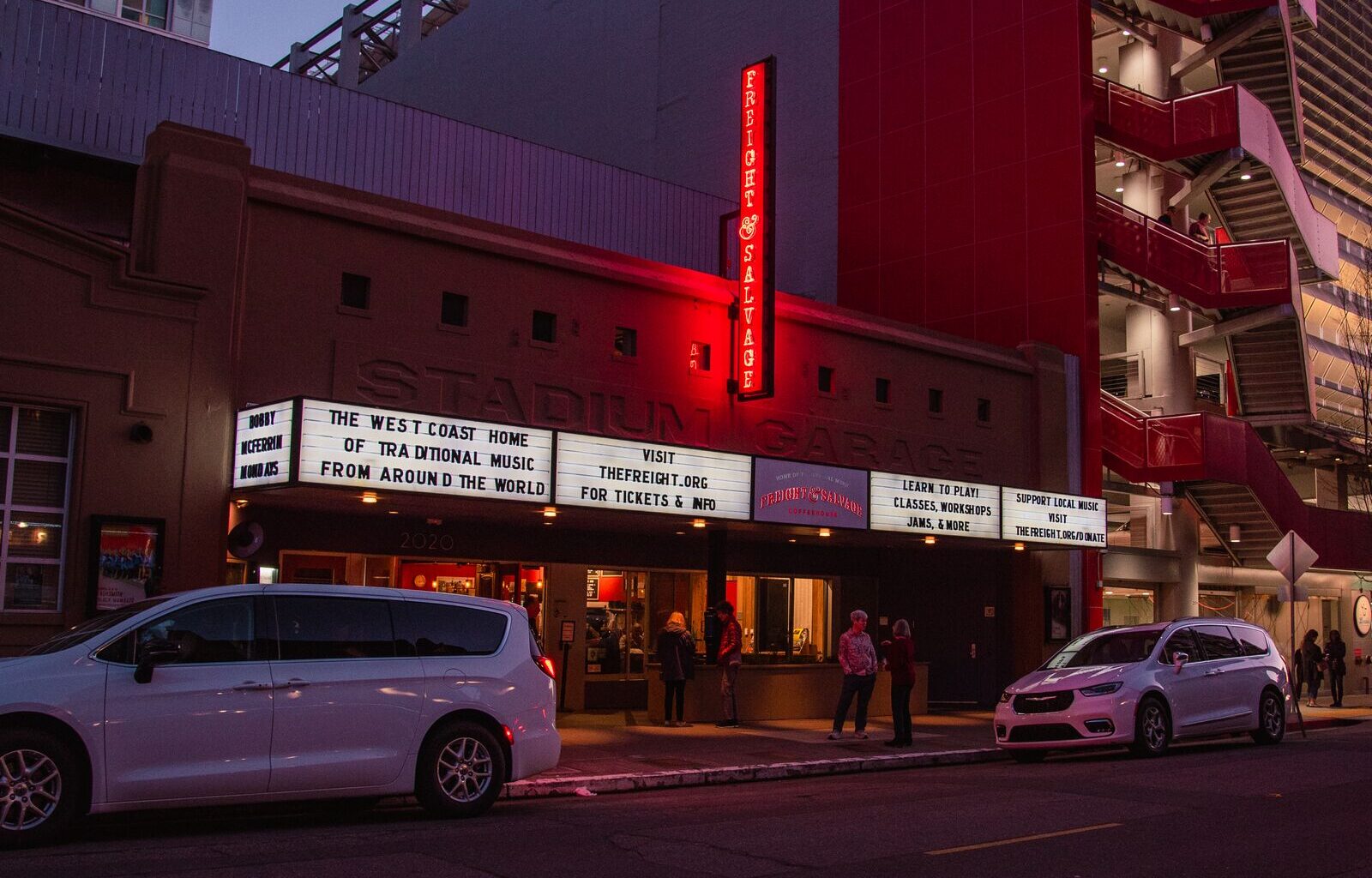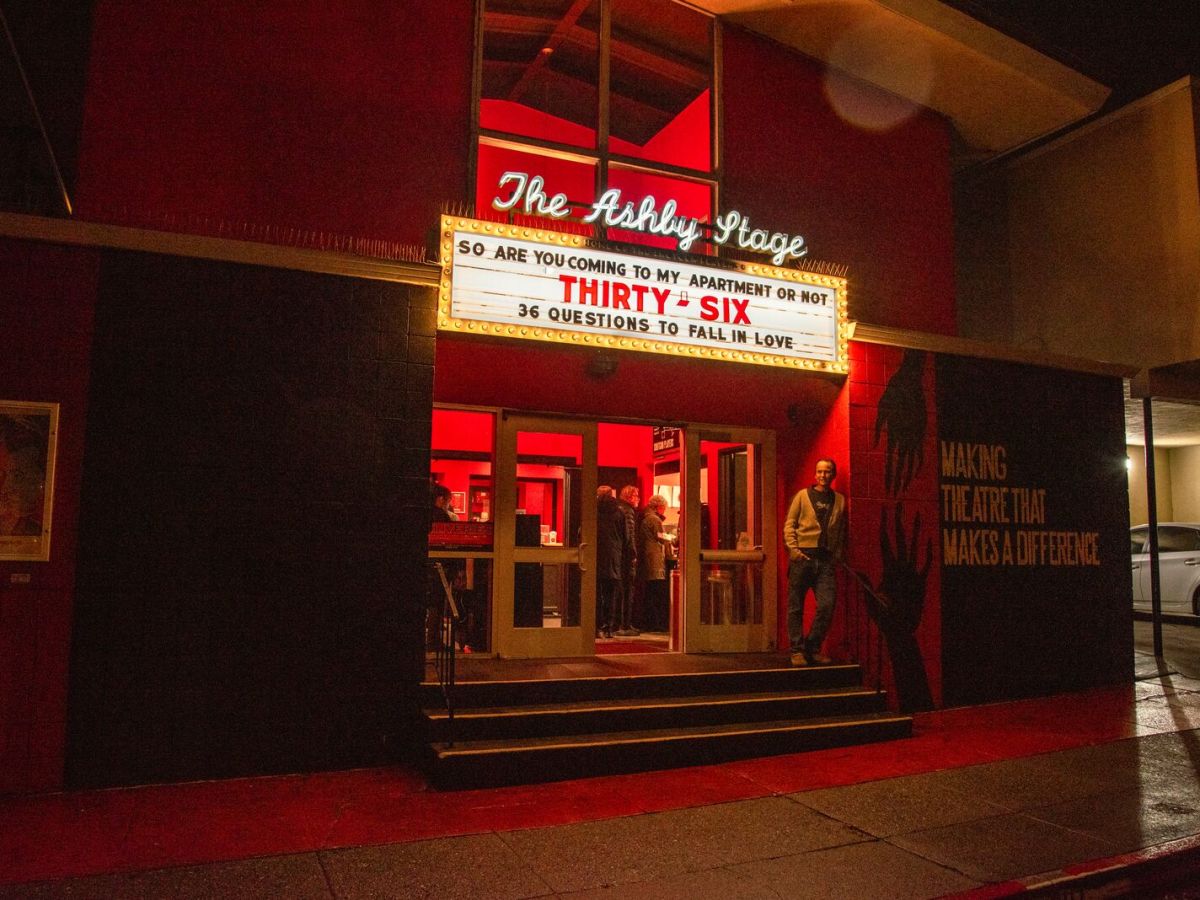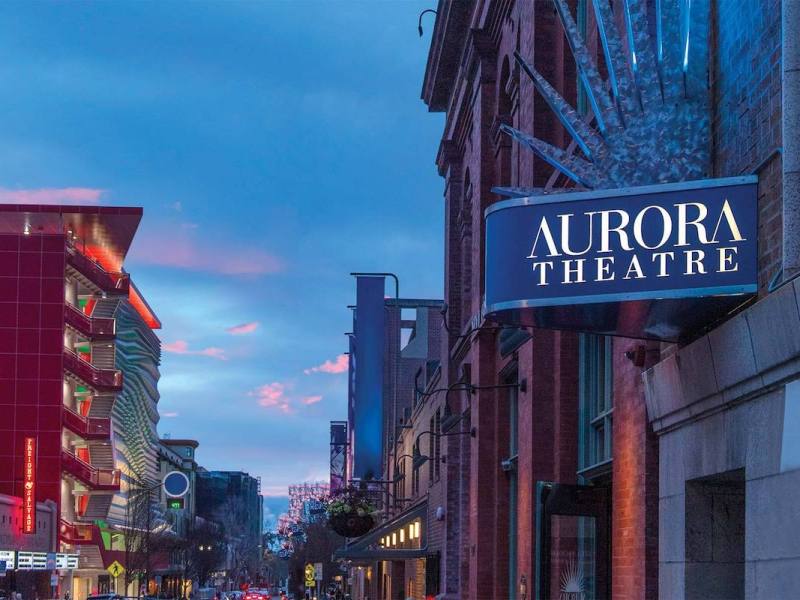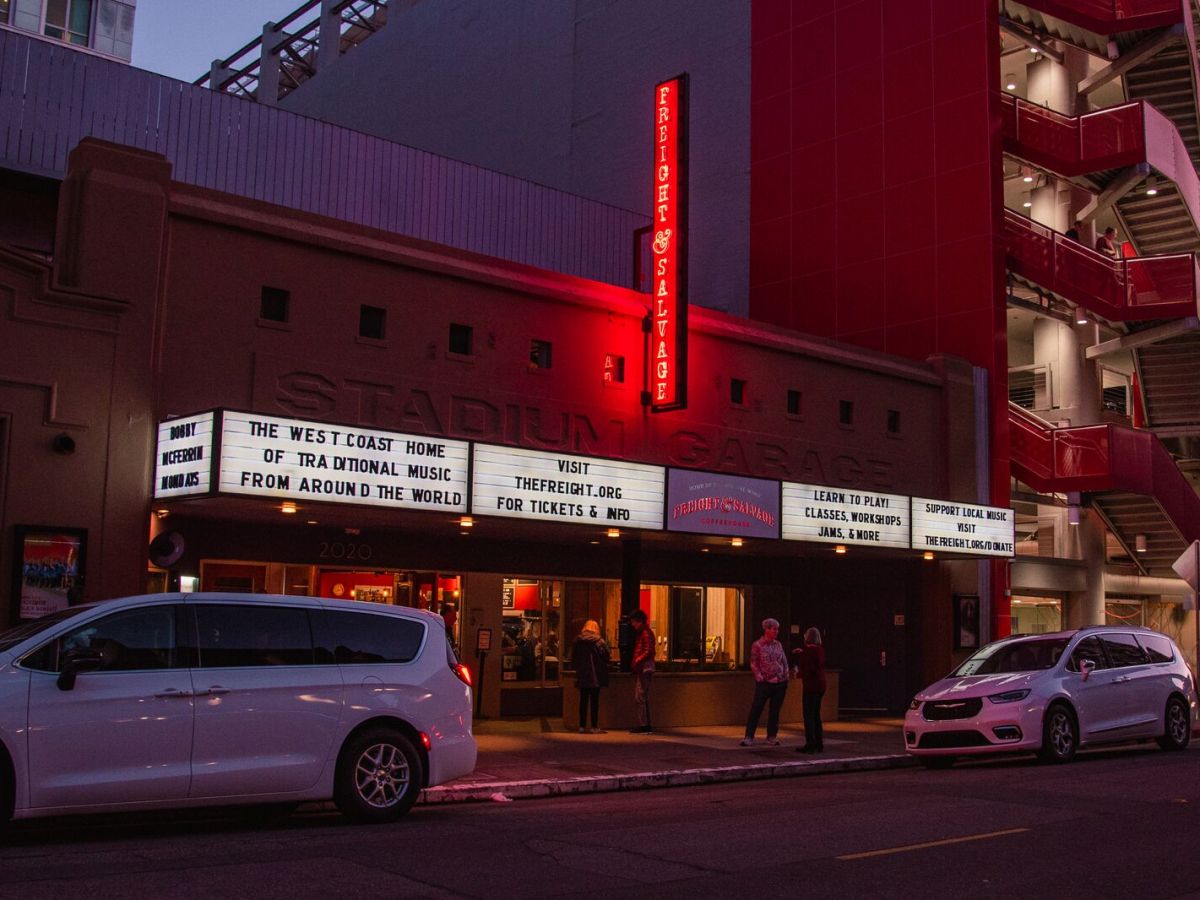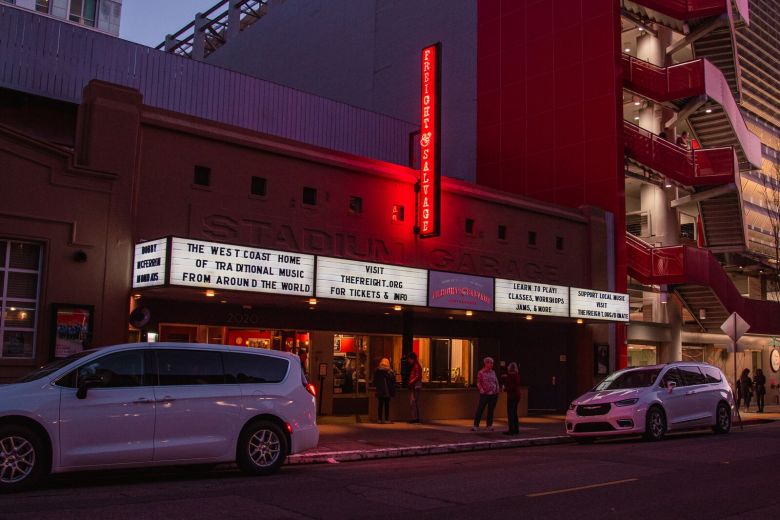 The Freight & Salvage is one of several local organizations working to put a measure on next year’s ballot to raise money for the arts. Credit: Ximena Natera, Berkeleyside/Catchlight
The Freight & Salvage is one of several local organizations working to put a measure on next year’s ballot to raise money for the arts. Credit: Ximena Natera, Berkeleyside/Catchlight
Berkeley voters may be asked to consider a ballot measure next year that would increase property taxes to generate money for performing arts organizations, which have struggled to bounce back from the pandemic and fear they can no longer rely on federal funding.
A new coalition of arts groups that includes Berkeley Repertory Theater, Berkeley Symphony Orchestra and the Freight & Salvage announced last week that it will start collecting signatures for a parcel tax of 7 cents per square foot. That would translate to an increase of $105 per year for a 1,500 square-foot home and raise more than $5.5 million annually for the arts.
“We believe that Berkeley without the arts isn’t Berkeley,” said Liz Lisle, managing director of Shotgun Players. “It’s a basic value of the city.”
Attendance and subscriptions are only now starting to match pre-pandemic figures at Shotgun Players, which only this year returned to comparable revenue, Lisle said.
Others haven’t been so lucky. Aurora Theatre shut down earlier this year, joining a list of closures that also includes the Bay Area Children’s Theater, TheatreFirst and the California Jazz Conservatory’s degree program.
Seventeen Berkeley arts organizations are listed on the coalition’s website as endorsing the ballot measure, and Lisle said more support the campaign. But while some groups have backed the effort with money, others can’t afford sponsorship.
“We literally do not have a dollar,” Lisle said she has heard from some. “We can’t contribute to the campaign because we’re in so much trouble.”
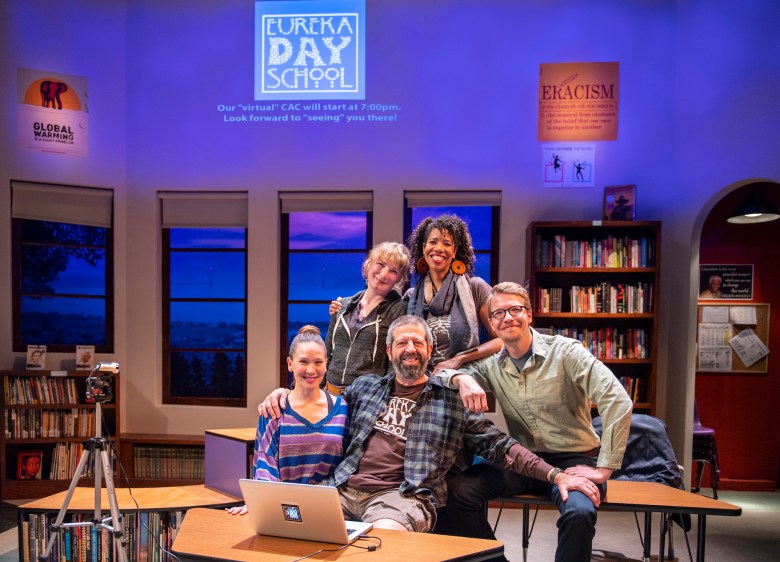 The cast of “Eureka Day” at Aurora Theatre in 2018. The renown theater shut down earlier this year. Credit: David Allen
The cast of “Eureka Day” at Aurora Theatre in 2018. The renown theater shut down earlier this year. Credit: David Allen
Local funding could replace loss of federal grants
Tom Parrish, managing director of Berkeley Repertory Theatre, said his organization has a $5 million deficit. In May, Berkeley Rep found out that a $40,000 National Endowment for the Arts grant that it was using to incubate new plays had been rescinded. The organization ultimately did not lose any funding, after submitting reimbursements that the government honored, Parrish said.
But thousands of arts organizations across the country have lost federal funding, as the government rescinded grants that were not in line with President Donald Trump’s priorities. The Berkeley Arts Coalition is turning to taxpayers in part because they do not believe their artistic vision aligns with those priorities. Public funding, Parrish noted, would help close the widening gap.
To get the measure on the November 2026 ballot, the Berkeley Arts Coalition needs to secure 2,625 signatures from registered Berkeley voters, said Lisle, who recently launched a website to advertise the campaign. The measure would need support from a simple majority of voters to pass.
If it’s approved, 75% of the funds would go toward nonprofit performing arts grants, and the remaining money to subsidizing Berkeley’s existing civic arts grants, arts infrastructure and community festivals.
Will voters back another tax increase?
Lisle said the coalition was encouraged by polling conducted this summer by EMC Research, which found that 63% of those surveyed expressed support for the measure, and 93% agreed that “arts and culture are a critical part of what makes Berkeley a special place to live.”
But Krista Gulbransen, executive director of Berkeley Property Owners Association and Berkeley Rental Housing Coalition, questioned whether voters will back the proposal, given the slew of ballot measures they passed in 2024, including tax increases for parks, street repairs and libraries. In addition, she noted, many homeowners are seeing their insurance rates go up.
“This particular ballot measure or any additional property tax assessments are going to be a very hard lift for anybody that is trying to push it through, even if it’s for a really good thing like the arts,” Gulbransen said.
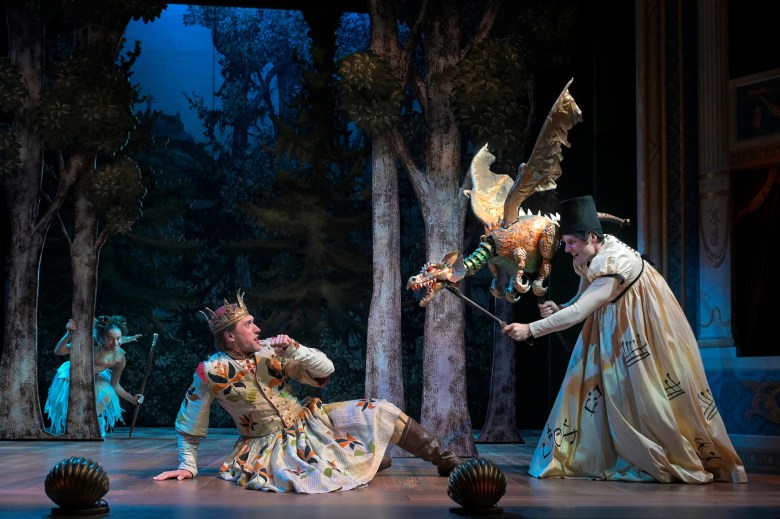 Reese Parish (The Spirit), Billy Rude (Tamino), and Russell Mernagh (Monostatos, Armored Guard) perform in a 2024 production of “The Matchbox Magic Flute” at Berkeley Repertory Theater. Credit: Alessandra Mello/Berkeley Repertory Theatre
Reese Parish (The Spirit), Billy Rude (Tamino), and Russell Mernagh (Monostatos, Armored Guard) perform in a 2024 production of “The Matchbox Magic Flute” at Berkeley Repertory Theater. Credit: Alessandra Mello/Berkeley Repertory Theatre
She pointed out that the state and cities also are turning to taxpayers to bridge gaps in federal funding for education, the environment and a host of other areas traditionally covered by federal dollars.
“They’re basically asking their citizens to float the economy, and we’re all the ones who are suffering to begin with,” Gulbransen said. “Everybody and every city is going to be asked to help decide whether to fill in the blanks where the federal government has failed us as citizens.”
The coalition is asking voters to imagine a Berkeley without the performing arts, and without the economic boost from ticket-holders who spend money in local restaurants. Parrish said the arts community helped the city recover from the pandemic by bringing people back together.
“During the pandemic, I often said that the medical professionals were the first responders to the pandemic and that the cultural workers would be the second responders,” he said. “And it’s our job to try and re-knit communities back together again.”
The coalition has until late May to secure the signatures.
This story is part of “The Stakes,” a UC Berkeley Journalism project on executive orders and actions affecting Californians and their communities.
Related stories
Berkeley’s cherished arts venues are in trouble. What can be done?
January 6, 2025Jan. 6, 2025, 2:53 p.m.
Aurora Theatre suspends upcoming season, citing financial challenges
May 14, 2025May 15, 2025, 5:26 p.m.
Berkeley’s Freight & Salvage attempts to bounce back after nearly $1M deficit
March 25, 2024Aug. 9, 2024, 8:44 a.m.
“*” indicates required fields

